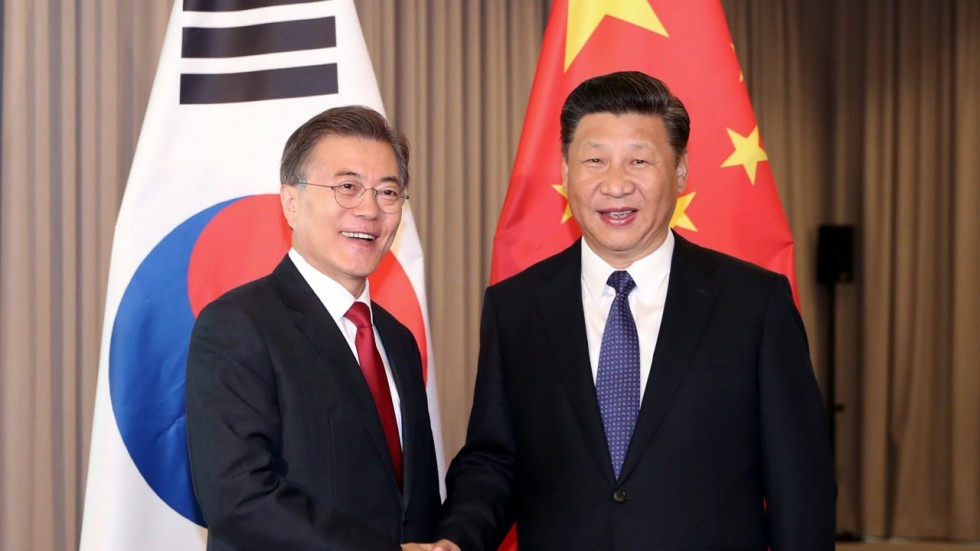South Korea-China trade woes
August 23, 2017 | Expert Insights

The unofficial Chinese ban on South Korean exports has significantly hit multiple industries in South Korea.
China had earlier condemned South Korea hosting the Thaad defense missile systems.
Background
China is the second largest economy in the world by nominal GDP. It is both the largest economy in the world and the largest exporter of goods. The region is the world’s largest consumer market and it is the second largest importer in the world. Between 2013 & 2015, China was the top trading nation in the world. Currently, it is second to the US. According to the World Trade Organization (WTO), China's trade in goods for 2016 came up to $3.68 trillion.
In the past China has used trade agreements to punish regions that challenge its foreign policy. In November 2016, the exiled Tibetan leader, Dalai Lama visited Mongolia. A week after his visit, China imposed fees on commodity imports from Mongolia. Mongolia, in an attempt to thaw the relations, promised to never invite Dalai Lama again. At the time, Chinese Foreign Minister Wang Yi said, “We hope that Mongolia has taken this lesson to heart.”
The Terminal High Altitude Area Defense (THAAD) is an American anti-ballistic missile defense system. It has been deployed in the United Arab Emirates, Turkey, and South Korea. It can shoot down short, medium, and intermediate range ballistic missiles.
Analysis
South Korea has grown increasingly dependent on North Korea for its exports. According to data from Korea International Trade Association (KITA), South Korea's exports to China, excluding Hong Kong, was $124.4 billion in 2016. South Korea posted a surplus of $37.5 billion in bilateral trade with China.
This revenue was threatened when South Korea hosted the Thaad missile defense system. China has repeatedly voiced its concern as it believes this puts its own security at risk. The nation never officially imposed any sanctions on South Korea but the backlash regarding Thaad has been significant. The government unofficially led a boycott of South Korea companies and services. Travel was one of the industries that suffered as companies in China stopped selling tour packages to South Korea. The car sales of South Korean companies like Hyundai saw their sales drop by nearly half in China. A number of supermarkets have also shut down as a result. However, any unofficial ban on South Korea seems only limited to consumer products. South Korea’s semiconductor exports have performed strongly in 2017.
Park Chan-woo, a senior researcher at the KITA, has said that a growing dependence on China would harm South Korea in the future. He noted, “Focusing on China could lead to losses as China's protectionist moves strengthened and its competition with South Korea is intensifying.”
Assessment
Our assessment is that South Korea needs to start exploring new and alternative markets for its exports if it wants to minimize the fallout of a Chinese retribution. The region is currently dealing with the increased threat of North Korea and it cannot afford to become a pawn in China’s designs.








Comments